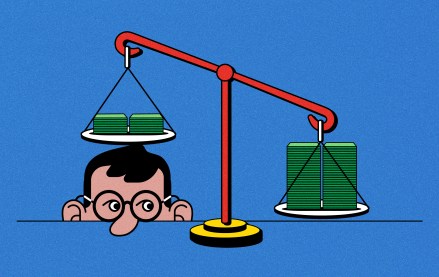Secure your place at the Digiday Publishing Summit in Vail, March 23-25

J Barbush is vp and creative director for social media at RPA Advertising.
Hey, Gen-Y’ers, congratulate your future selves. Because all that hard work in college (kidding), the money spent in ad school (thanks, mom and dad!) and those long nights in the office (not drunk) have finally paid off. You’re a creative director (CD).
It may be a few years down the road, but to be a great CD, you should start learning now. They don’t teach that stuff in ad school or at your agency. So, here are a few tips to file away for when you’re in charge.
Keep creating
It’s easy to get caught up in the world of meetings and emails that you lose track of what you love about this business. Being a working creative director keeps you honest, humble and closer to your team. Even if you are doing spec work, or writing an article like this, don’t turn your back on the skills that brought you here. Keep the creative mind fresh. Rust sets in fast.
Lead teams to the well
When I first started reviewing copy as an associate creative director (ACD), it was much easier to make the changes myself. It saved time and energy, but ultimately was a shortcut (that was bad for the long run). So I corrected and built in time so my writers could arrive at their own pace. If you do the work for them, no one learns.
Know the brief
When there are multiple projects going on, it may be hard to keep track of them all. At the minimum, know the brief, and be accountable to the objectives when the team presents to you. Young teams sometimes focus on shine, so it’s your job to solidify the connection from the brief to the work.
Don’t solve their problems
If you are a CD, chances are you are a good problem solver. But give your teams a chance to figure things out on their own. Chances are, they will get there and develop a valuable skill along the way. It’s time well spent.
Teach teamwork
There are so many touchpoints and nuances to an idea, it’s important that your team connects with the specialists around them. You need to reward those who collaborate and encourage those who don’t. The sooner they learn the give-and-take of the business, the sooner they will thrive.
Show respect
Establish a mutual trust with your team, and always respect their ideas. There are some creative directors who have clawed their way to the top. From their perch, they make life difficult for their teams, because that’s how they were treated. That’s not a good way to earn respect. Be vulnerable. Be willing to fail in front of them. Admitting you were wrong about something will earn you more respect than always presuming you are right.
Help it sell
Teams will work tirelessly on an idea, meticulously crafting it into the wee hours. But when the critical time comes to sell that idea, no time has been put toward it. Presenting an idea should never be downplayed. Have your team present it to you, and give feedback on the presentation. It’s a skill that is often overlooked, and the more it is developed, the better everyone will be.
Never stop learning
Technology is a bastard. It makes us do things that we don’t want to do. Like embrace Snapchat. But if you don’t play in the digital world, you will never understand it. Participate in the new or be rendered obsolete. And always, stay curious. No matter how many gray hairs you have.
Image courtesy Igor Bulgarin / Shutterstock.com
More in Marketing

Brands at eTail Palm Springs share lessons on the ‘messy middle’ of building AI tools
Here’s a rundown of lessons brands have shared about their AI implementations so far.

Despite 2025 revenue beats, The Trade Desk’s stock price falls sharply after earnings update
Despite 2025 revenue nearing $3 billion, lower-than-expected Q1 guidance disappoints, as CEO Jeff Green pushes back against competitors and detractors.

Brands celebrate tariff reprieve, but fresh uncertainty looms
After the Supreme Court struck down Trump’s tariffs, brands welcomed the relief but say ongoing trade uncertainty and unanswered questions about refunds are keeping business decisions on hold.





